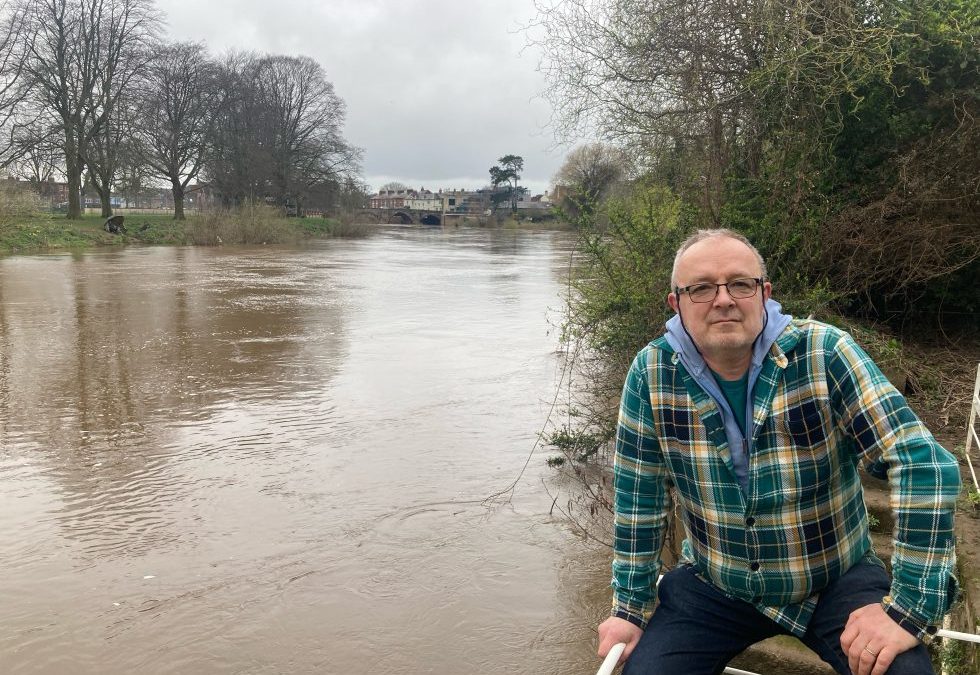Please Note: The following articles is a press release from law firm Leigh Day:
A team of Leigh Day lawyers will attend the annual Hay Festival at Stand 7 where residents can go to meet them and put their questions about the collective legal action against the alleged impact of intensive poultry farming.
The Hay Festival, an annual event that brings people together to discuss and showcase art, science, music, literature, and political debate is running from Thursday 23 May to Sunday 2 June 2024.
The Leigh Day legal team will be attending the first five days of the festival and will have a stall to provide information about the ongoing pollution of the River Wye and how local people can join the claim against the alleged polluters.
Leigh Day announced the civil claim against Avara Foods Limited in March 2024 and expanded its scope in May to include Avara’s parent company, Cargill PLC, a US multinational food producer.
Leigh Day argues that the companies’ intensive poultry farming is causing the degradation of the Wye and its tributaries as chicken manure contains excess phosphorous which leaches into soil and watercourses.
Avara produces a reported 4.5 million chickens a week with a £7.4 billion turnover since entering the River Wye region in 2017/2018.
The legal claim against Avara Foods and Cargill PLC is seeking remediation and also compensation for those who live or work near the Wye or enjoy the river recreationally and have been affected by the pollution.
Residents have shown their support for the legal claim, and encouraged Leigh Day to attend the Hay Festival to reach a wider audience and speak about the environmental issues the Wye is facing.
Leigh Day client stories
Jeffrey Hancorn
Jeffrey owns a development site for 33 houses in Canon Pyon, a village in Herefordshire in the River Lugg catchment (which flows into the River Wye).
He described how he had been unable to achieve planning permission for the houses due to the phosphate moratorium.
This means that new developments in the area are on hold until the phosphate levels in the catchments have lowered to optimum levels. Jeffrey voiced his concern for how the pollution is affecting housing in the local community, noting the effect on young families who are unable to get onto the property ladder due to the shortage of houses.
Jeffrey said:
“My development site would have been built and people living in the homes if the river had been clean, and the Dutch phosphate moratorium had not been implemented.
“It has not only been the death of the river, but the death of communities.”

Julian Nancarrow
Julian is based in Lower Eaton, Herefordshire near the River Wye. He has noticed the decline in the ranunculus plant (exp) which is important for the river ecosystem.
The ranunculus has been a habitat for smaller fish and many invertebrates, providing the river with structure and acting as a filter bed.
Julian says that the loss of ranunculus is an indicator of the state of the ecosystems which are in mass decline.
He used to take his grandchildren to paddle in the river but is now unable to as the river has become so polluted and unpleasant.
Julian said:
“We live with 300 m of the river at Lower Eaton. When we moved here in 2017, there were ranunculae flowing under the bridge at Bridge Sollars, now they are gone.
“We no longer take our grandchildren to paddle in the river as the riverbed is covered in a brown slime. As we are not sure as to the safety of paddling, we have lost a beautiful amenity.”

Image of Julian Nancarrow (centre) with Dr Peter Nancarrow (left) and Dr Lewis Nancarrow (right)
Caroline Tivey
Caroline used to be a regular wild swimmer in the Wye. She moved to Herefordshire in 2001 and found the river to be a great alternative to the sea.
She noticed that the riverbed started to become slimy over the years and believes this was caused by pollution. The condition of the river grew so poor that Caroline stopped swimming there.
Caroline said:
“I was a regular swimmer in the Wye both at Bredwardine and Hay. I started to notice the stones on the riverbed had become slimy and to begin with, wasn’t sure why this was. I found out it was caused by pollution and since then I have stopped.
“As an avid swimmer, one of the benefits of moving to Herefordshire in 2001 was the river. Being nowhere near the sea, this provided an excellent alternative.”

The civil claim is being led by Leigh Day partner Oliver Holland. Oliver said:
“I am thrilled that my team have the opportunity to attend this renowned cultural festival and to meet more residents in person and hear their stories.
“We are taking legal action on their behalf as the Wye is suffering alarming levels of pollutions which is not only affecting the environment but also people’s enjoyment of the beloved river and people’s lifestyles and livelihoods. My team will be sharing more information about our civil claim which we hope will result in compensation and a sense of justice for those affected.”
Members of Oliver Holland’s team who will be attending the festival include associate solicitors Celine O’Donovan and Benji Gourgey. They will be located at stand 7 at the festival.
To find out more about the legal claim click here.

